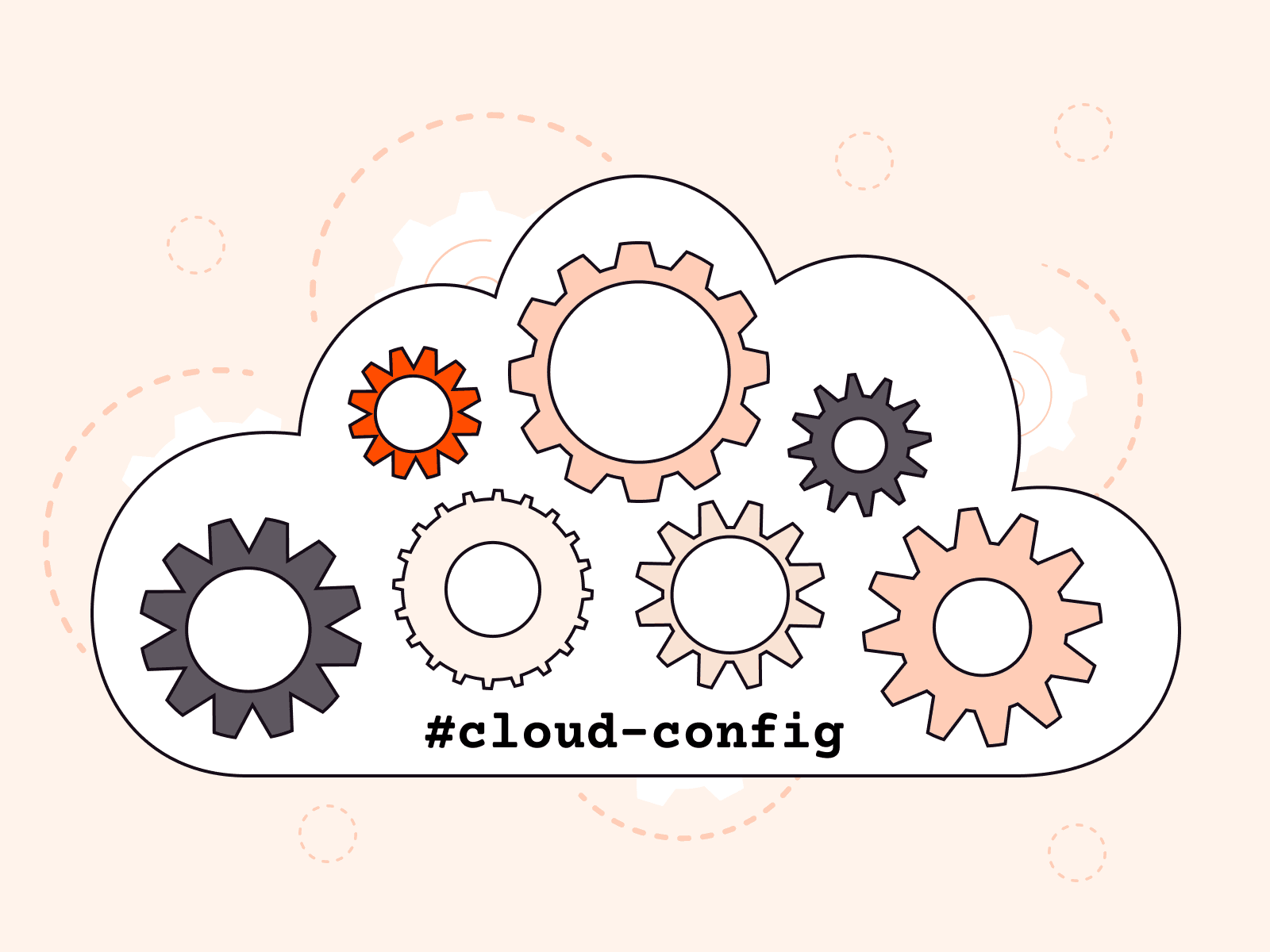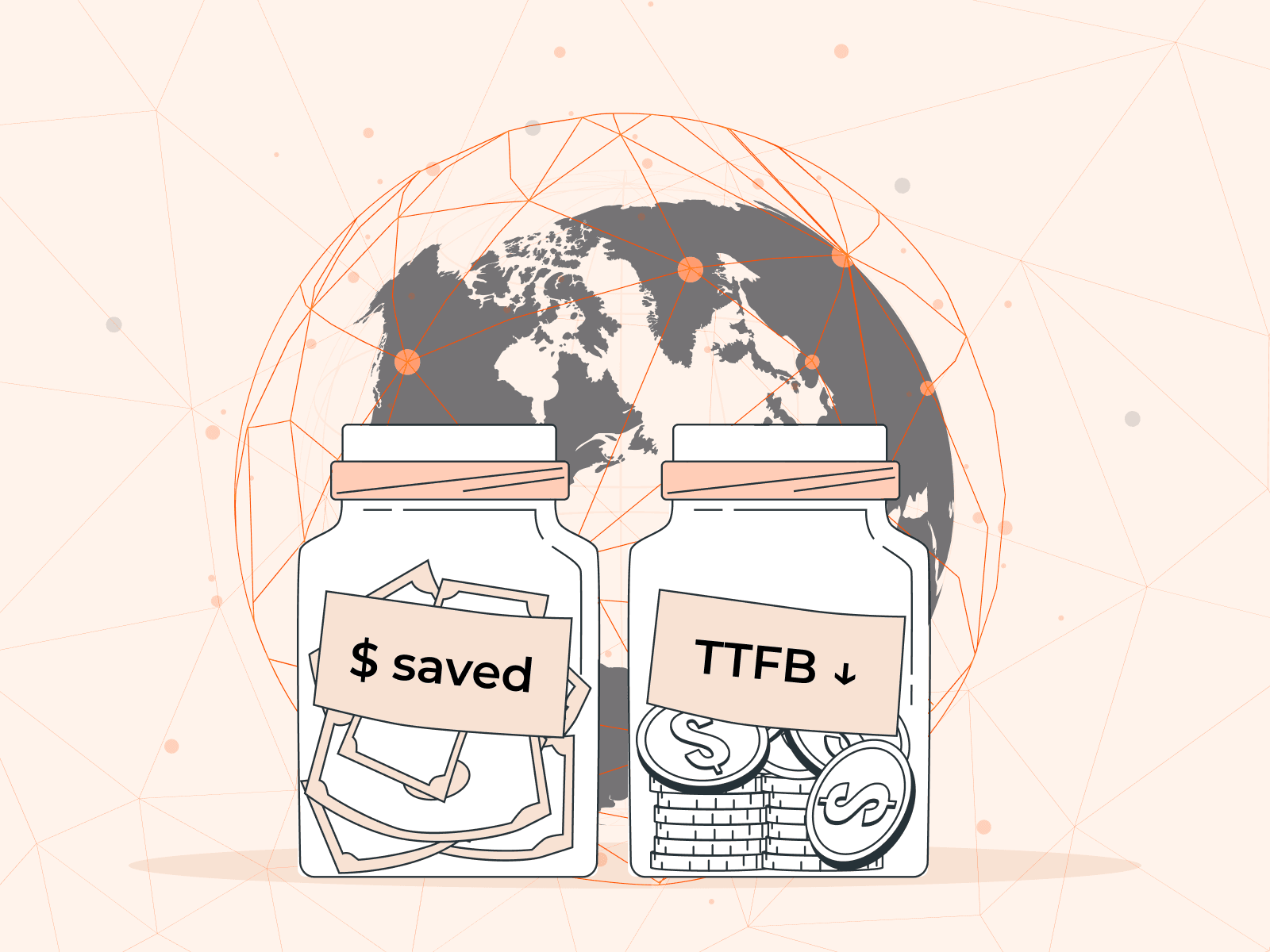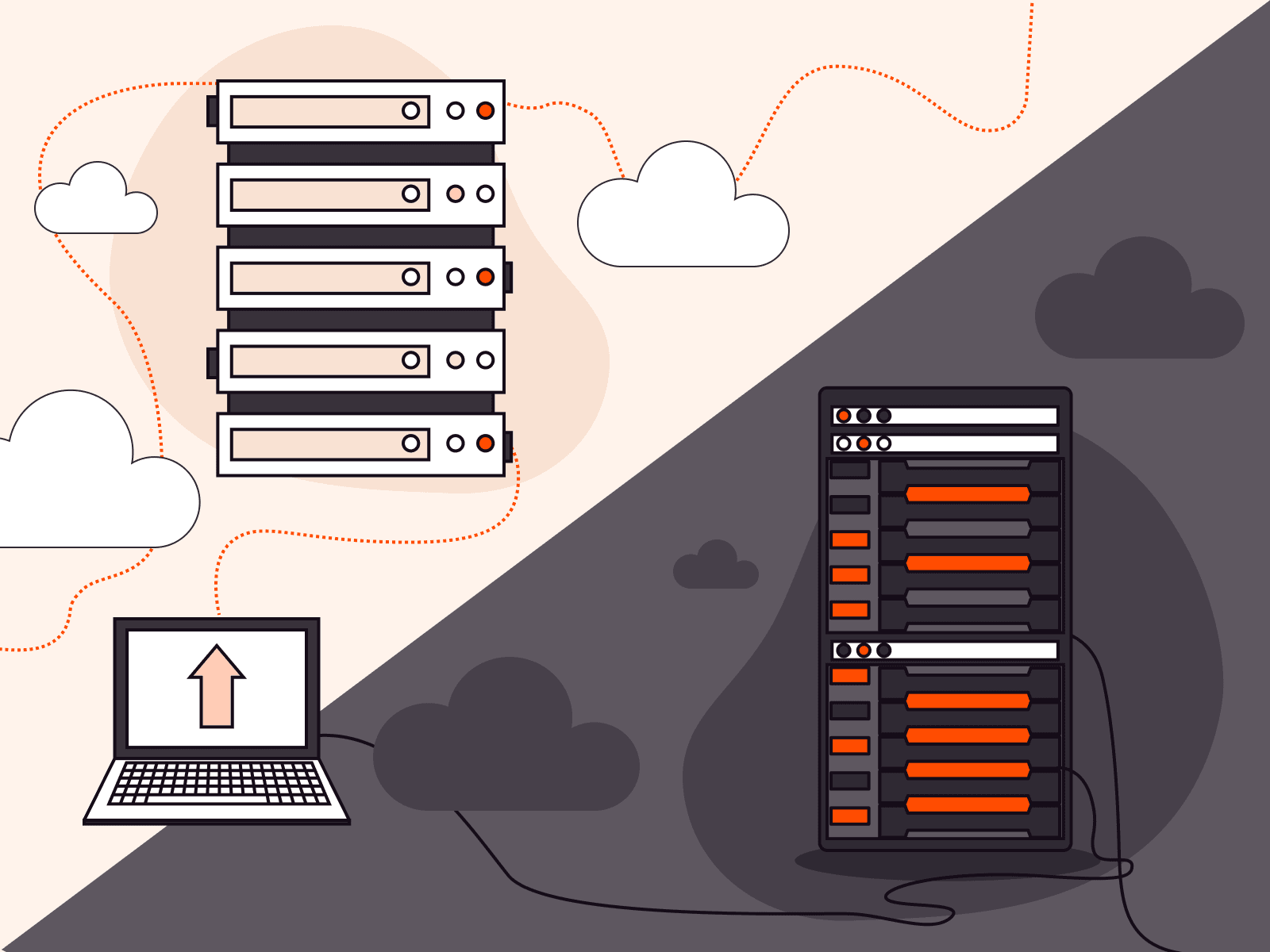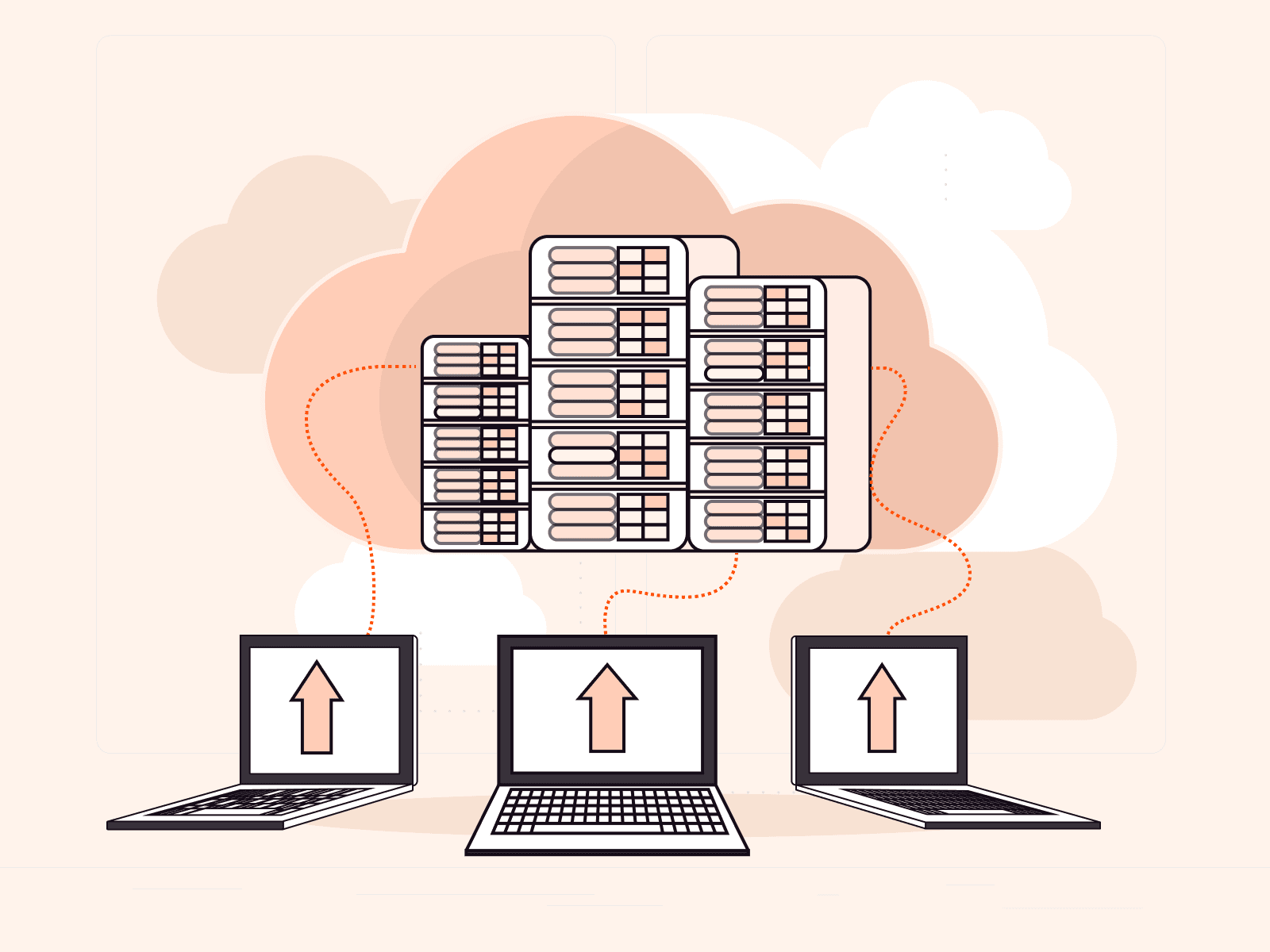Bare metal servers present a powerful solution for individuals or businesses seeking unmatched performance and reliability. These servers—unlike shared hosting services—are exclusively allocated to a single user or tenant, providing dedicated resources for tasks that require top-tier performance, customization, and dependability. In this in-depth exploration of bare metal servers, we’ll explore their function, benefits, and potential applications, helping you decide whether this robust computing solution is the right fit for your business, project, or client needs.
Try Bare Metal with 35% off this month
If you’ve been disappointed by your provider during peak season or you’re looking to scale going into 2025, this is the opportunity for you. For a limited time, new customers can enjoy 35% off on High-frequency Bare Metal Servers for two months.
Take advantage of the offer by January 7 to secure your discount, available for the first 500 customers.
What Are the Key Features of Bare Metal Servers?
A bare metal server is a physical server that is accessed via the cloud. It offers a unique degree of control to a single user over the equipment, unlike shared services. When using a bare metal server, the client has complete management over the hardware resources and server’s load. This results in the following key features:
- High performance. Bare metal provides robust performance capabilities, as the entire server’s resources are dedicated to a single user. This results in faster data processing, reduced latency, and improved overall performance.
- Dedicated resources. Bare metal servers offer dedicated hardware resources such as CPU, RAM, storage, and network interfaces. This means you have exclusive access to these resources, ensuring optimal performance for your applications.
- Enhanced security. Enhanced security is available with bare metal, compared to shared or virtualized environments. Users have complete control over the server’s security measures, ensuring the option of implementing stringent protection protocols. This makes bare metal an ideal solution for sensitive data.
- Scalability. Bare metal offers scalability options to accommodate growing demands. Users can easily upgrade or expand server resources to meet changing requirements without any disruption.
These are just a few of bare metal’s key features. In the next section, let’s take a closer look at how a bare metal server works and explore its benefits in more detail.
How Do Bare Metal Servers Work?
Bare metal servers operate by granting direct access to the underlying physical hardware; they eliminate unnecessary layers and complexities regarding server access, resulting in a more efficient system. Here’s a breakdown of a bare metal server’s operation.
1. Operating System Installation
Users have the flexibility to choose their preferred operating system (OS) and install it directly on the bare metal server. This eliminates the need for virtualization software and provides greater control and customization options. Additionally, keeping the operating system up to date is crucial for optimal server performance as it helps protect data and defend against external threats.
2. Resource Allocation and Management
Resource allocation on a bare metal server gives users full control over computing resources. After the operating system is installed, users can customize the allocation of CPU cores, assign the desired amount of RAM, and determine the storage capacity based on their specific requirements.
This level of control enables optimized utilization of server resources, allowing users to allocate the right amount of computing power, memory, and storage to different applications and workloads. Users can ensure efficient performance and responsiveness for their specific tasks by tailoring the resource allocation to their needs, maximizing the server’s capabilities.
3. Hardware Provisioning and Configuration
The process of hardware provisioning involves assigning and configuring specific physical components of a bare metal server, such as the CPU, RAM, storage, and network interfaces, for exclusive use by the server. This ensures that the user has complete access to the allocated resources and can make the most of them.
What Is the Difference Between Bare Metal Servers and Shared Hosting Servers?
If you own a website, you’re probably familiar with shared hosting servers, where users share resources to save costs. However, there are downsides. Shared hosting is limited in terms of performance and reliability because resources are distributed among multiple users, leading to potential slowdowns during peak usage or when other users’ needs increase. As such, businesses or individuals with resource-intensive applications, growing traffic, or high-performance requirements might encounter performance problems when using shared hosting.
Enter bare metal servers. A bare metal server is a physical server that is exclusively allocated to a single user or tenant. You have your own private space, where you can enjoy all the resources and benefits of having an entire server just for yourself. Unlike shared hosting servers, bare metal servers are not shared with other users, providing dedicated resources for enhanced performance and reliability—this means that bare metal is a serious upgrade for serious users. Bare metal is perfect for tasks that need top-notch performance, reliability, and customization.
What is the Difference Between Bare Metal Servers and Dedicated Server?
While there are similarities between bare metal and dedicated servers—such as being dedicated to a single user and not sharing resources with other users—bare metal servers use more advanced technology in terms of hardware. The main difference lies in how they operate. A bare metal server offers direct access to the hardware and allows for greater customization, while a dedicated server operates within a virtualized environment, sacrificing performance for the benefits of scalability and resource sharing. Dedicated servers can be challenging to operate. On the other hand, bare metal servers operate seamlessly with the assistance of a software called a hypervisor.
This means that a bare metal server is a significantly more powerful solution compared to a dedicated server. A dedicated server can get the job done for certain use cases, but it is worth noting that a bare metal server gives you complete control. It offers superior hardware and greater flexibility for customization to suit your particular requirements to your business.
Who Should Use Bare Metal Servers?
Bare metal servers provide flexible usage options to meet diverse needs. However, the question arises: Who should consider using a bare metal server? Is it suitable for everyone? To help you find the answer, we have compiled a list of who can benefit from using bare metal servers with real examples from across industries.
1. Businesses That Need High Bandwidth to Meet Growing Demands
If you’re a business owner and your online service requires significant processing power and memory to handle demanding workloads like high-traffic websites, gaming servers, or video streaming platforms, it is worth considering using bare metal servers. These servers are designed to provide the necessary resources and performance capabilities to support such intensive tasks.
Case Study: TV Streaming Services
Based on the Digital 2023: Global Overview Report, it is observed that the latest findings show that popular streaming services like Netflix and Disney+ have gained significant traction, capturing over 45% of the total TV viewing time among internet users of working age. This represents an increase of 10% since Q3 2019, indicating that users are now spending more than 1.5 hours per day on streaming services and online TV.
In order to meet the rising expectations of users and stay competitive in the media industry, content providers need to ensure fast and high-quality content delivery. This is particularly important when facing competition from established platforms like Netflix. To achieve this, having an infrastructure with sufficient bandwidth is crucial; this is where bare metal servers come into play. These servers offer the capability to deliver content at high speeds, ensuring a seamless and enjoyable user experience. Gcore offers an exclusive infrastructure tailored for streaming video, which can be combined with Gcore Bare Metal for a top-of-the-line streaming solution.
2. Services Handling Highly Sensitive Data
Many websites and applications handle highly sensitive information and require enhanced protection options.
Case Study: Fintech, Healthcare, and E-Commerce
In the high-stakes world of fintech, bare metal servers provide the robust security measures required for the safe handling and storage of sensitive financial documents. Similarly, healthcare institutions such as hospitals can use the advanced security features of bare metal servers to protect vital medical records. E-commerce sites, social media platforms, and streaming services continuously handle large volumes of confidential data, such as credit card numbers or social security details.
To ensure the protection of sensitive data, bare metal is a wise choice. Some bare metal server providers, like Gcore, offer built-in defenses against common security threats like DDoS attacks. It’s important to examine these security features available in bare metal servers. We’ll get into this in more detail in the next section.
3. Gaming Companies
By utilizing bare metal servers, gaming companies and their developers can meet the performance demands of modern games, ensuring fast processing speeds and low latency. This is especially crucial for AAA games that require high-performance capabilities.
Additionally, in multiplayer gaming, low latency is essential to provide a seamless and immersive experience for players. Bare metal servers contribute to low latency by reducing network latency, minimizing delays, and enhancing overall gameplay quality. Bare metal servers also help to ensure the security of user data, which is critical in the gaming industry where personal information and payment details are handled.
4. AI and Machine Learning Developers
With 2023’s focus on AI, numerous companies—from tech giants to individual entrepreneurs—are jumping on board to create an impact and take advantage of this growing industry. However, these types of projects require substantial processing capabilities to handle complex algorithms and large datasets. By utilizing bare metal servers, developers can access dedicated hardware resources, such as powerful CPUs and ample RAM, which are crucial for running resource-intensive AI and machine learning workloads.
In addition, the dedicated nature of bare metal servers ensures enhanced data security and privacy. AI and machine learning applications often deal with sensitive data, such as customer information or proprietary datasets. Developers can isolate their workloads on bare metal and maintain complete control over security measures, reducing the risk of unauthorized access or data breaches.
Here’s a helpful table that summarizes the various use cases of bare metal servers by industry or sector:
| Sector/industry | Use cases | Real-life example |
| Technology | Hosting high performance applications Virtualization platforms Big data workloads AI/Machine learning | Hosting a high-traffic website Creating an AI tool Running a data analytics platform |
| Finance | Secure and high-performance applications Banking systems, including financial transaction processing Data management | Hosting a banking system Processing financial transactions securely |
| Healthcare | Electronic health records Healthcare applications Data security and privacy Medical research | Hosting an electronic health record system Running medical research simulations |
| Gaming and media entertainment | Online gaming servers Media streaming platforms Content distribution | Multiplayer game servers like Minecraft and Counter-Strike Media streaming platforms such as Netflix and Apple TV |
| E-commerce | Hosting online platforms Managing high-traffic websites Processing secure transactions | Online marketplaces such as Amazon and Alibaba Processing customer orders securely |
| Research and data science | Complex simulations Large dataset analysis Scientific research Machine learning training | Running scientific simulations Training machine learning models |
It’s important to keep in mind that the way bare metal servers are used can differ depending on specific business needs and requirements. Additionally, there may be other industries that use bare metal servers that are not included in our list.
After learning about the different use cases that can benefit from using a bare metal server, you might be interested in acquiring one for either business or personal use. Let’s discuss the essential factors you should consider before purchasing.
Factors to consider when purchasing a bare metal server
Suppose you’re considering using a bare metal server for your business or project. In that case, there are several necessary factors to consider in order to make an informed decision when purchasing. Let’s take a closer look at them:
1. Cost
Cost is a significant factor to consider when purchasing a bare metal server, and here’s why. First, you need to find a server that fits your budget. Setting a budget and exploring different pricing options allows you to choose a server that offers excellent value without breaking the bank. Secondly, considering pricing allows you to compare the costs and benefits of different service providers. You can evaluate features, performance, and support to find the best deal for your budget.
Taking pricing and your budget into account helps you plan for the future. You can budget for the initial purchase and any ongoing expenses, like maintenance and future upgrades. You should make a purchase confident that you can afford the server and any additional services you need—not only now, but for the foreseeable future.
2. Resources and Performance
Understanding the resources available on a server helps you make sure that it can handle your specific capacity and power requirements. Different applications and workloads have different demands for CPU, RAM, storage and networking capabilities.
Performance is vital in delivering a smooth and great experience for your apps and services, but purchasing a bare metal server is a significant investment. That is why it becomes crucial to carefully assess which resources you actually need to achieve your performance goals, and purchase accordingly. By carefully evaluating the resources and performance of a bare metal server, you can ensure that it aligns with your specific needs, delivers the desired performance level, and provides the scalability required for future growth.
3. Support and Maintenance Services
It is essential to take note of the service provider’s support and maintenance services. Reliable support means that any issues or technical difficulties can be promptly addressed and resolved, minimizing downtime and disruptions to your operations. Regular maintenance and updates are also essential to keep your server running smoothly and securely, protecting your data and ensuring optimal performance. So, choosing a provider that offers comprehensive support and maintenance services can provide you with peace of mind and minimize potential risks and challenges associated with server management.
With all of these considerations in mind, let’s explore how Gcore’s bare metal server can benefit businesses and various sectors with its reliable bare metal service.
How Does a Gcore Bare Metal Server Fit Your Needs?
At Gcore, we recognize the importance of balancing affordability, effectiveness, security, and high performance when it comes to servers. That’s why our clients can benefit from our range of cloud services, including our bare metal servers. We prioritize value for money, performance, and top-of-the-line support to ensure a seamless experience for your business.
Let’s take a look at the advantages of Gcore Bare Metal:
- 99.95% SLA with financial guarantees. We provide a production-ready platform that guarantees uptime and provides comprehensive support service level agreements (SLAs.) Our platform is designed to ensure uninterrupted operation and maximum availability for your critical applications and services. With our reliable infrastructure and dedicated support team, you rest assured that your business will maintain a high level of uptime to meet your operational requirements.
- Vast computing resources. At Gcore, we provide unrestricted access to a vast global network of computing power. With our presence in 23 locations worldwide, we offer a low-latency infrastructure that ensures your applications and services can reach users globally with minimal delays. Take advantage of the benefits of our extensive global reach and leverage our infrastructure to deliver optimal performance and user experience.
- Security and reliability. We offer DDoS protection against DDoS attacks at the network and transport layers. Our comprehensive security measures ensure that your infrastructure remains safeguarded from malicious traffic and potential disruptions caused by DDoS attacks. In addition, we offer integration with CDN. You can connect our CDN to the cloud to speed up content delivery to end users in any point of the world. You can also connect our other products: Streaming Platform and Storage.
- Dedicated 24/7 support. We provide round-the-clock, expert technical support. Our dedicated support team is always ready to assist you with any technical issues or inquiries you may have, ensuring that you receive timely and reliable support whenever you need it. We are committed to delivering excellent customer service, day and night.
Learn more about the features, benefits and pricing about Gcore Bare Metal.
Conclusion
A bare metal server is a powerful and versatile hosting solution for businesses and individuals seeking high performance, security, and control over their infrastructure. Its use cases span various industries, including online services, media streaming, gaming, and AI. When buying bare metal servers, it’s crucial to take into account the cost, necessary resources, and available support.
Here at Gcore, we understand the importance of bridging affordability, security, and high performance. With our bare metal server offering, we prioritize cost-efficiency, performance, and reliable support. Our global platform ensures protection against DDoS attacks and provides a production-ready environment with guaranteed uptime and 24/7 support.
Interested in trying out Gcore bare metal service for your business or big project? Want to learn more about how bare metal works? Talk to our experts today. We’re ready to help and hear from you!
Related articles
Subscribe to our newsletter
Get the latest industry trends, exclusive insights, and Gcore updates delivered straight to your inbox.






